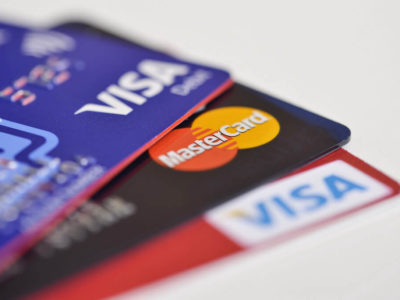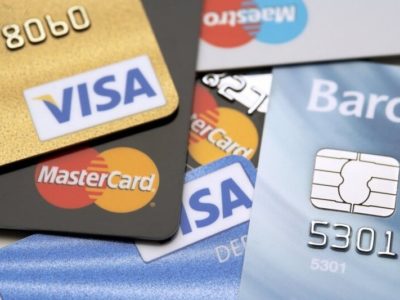Taxes and credit scores and paperwork, oh my! Adulting sneaks up on you quickly in college and independence comes with some not so fun chores, such as applying for a credit card. Rest assured, many credit companies have credit cards designed specifically for college students that accommodate things like unsteady incomes and no previous credit scores.
To find out how to pick the right credit card for you, keep reading.
You may think, “I already have a debit card. Why do I need another card to carry around?” Let’s start with the basics. What exactly is a credit card?
Credit cards allow users to spend money from banks on a credit, which means you have to pay the bank back by the end of each month or you get charged interest—a percentage of money you owe the bank on top of the original purchase. With credit cards, you can make larger purchases and pay them back in small amounts over time.
So, why does this matter to college students?
Credit cards allow you to build up a nice credit score. Like your Uber rating, a credit score evaluates how reliable of a customer you are. The best credit score is achieved by paying back everything on time.
“Credit scores are sort of this fake thing we came up with as a society, but they’re very important for a few reasons,” said Kara Perez, founder of Bravely, a community that helps women navigate finances and debt. “One, some companies check your credit score as part of the interviewing process. Two, some apartment buildings check your credit when you want to rent from them.”
Banks and lenders will definitely check scores if you want a loan of any type. “You want a high score to get a low interest rate,” said Perez.
Now that we’ve got the credit card basics down, let’s talk finding your perfect credit card.
Using websites like Value Penguin and Credit Karma can help find the right credit card for your needs. These websites allow users to put in information about their spending habits to compare credit cards.
You want to find a credit card that has no annual fees, low interest rate and a low credit limit. The credit limit dictates how much you can spend per month. “Don’t dig yourself into debt with a card that gives you $10,000 in credit when you don’t need that much,” said Perez. She created Bravely after she paid off $25,000 of debt in just 10 months on a $30,000 salary.
Perez suggests that a good place to start for students interested in traveling is The BankAmericard Travel Rewards. With no foreign transaction fee, this card “is an excellent choice for cost-conscious globe trotters,” according to NerdWallet. So, if you plan to go abroad in college, this may be the card for you.
The sheer number of credit cards and banks to choose from may feel overwhelming, but each card has different benefits. These defining benefits makes narrowing down your choices a little easier. If you don’t think you will spend a lot of money on travel, you can look at other cards that opt to offer cash back rewards.
With cash back credit cards, “the credit card company based on your usage will give you a little bit of money back by the end of the month,” said Ben Raines, Financial Education coordinator at Ohio State. “Airline miles is a good one too,” said Raines. “It’s essentially, similar to cash back except you can use it to book flights or hotel rooms or whatever transportation you want to go on trips.”
Another option to consider for us clumsy people is a bank with warranties.
Some cards from Citi Bank and American Express offer warranties for broken technology items that you buy on your card. This will help you out when you break your phone or laptop. “If I bought an iPhone on my credit card and that iPhone breaks and Apple won’t do anything about it, often times the company can help you out with that sort of thing,” said Raines.
Tim Devaney, finance writer at Credit Karma, recommends Deserve EDU MasterCard and Discover It Student Cash Backs as cards that would be practical investments for students. With the Deserve EDU Mastercard, students can get discounts and rewards for buying textbooks. With the Discover It Student Cash Back, students get actual cash back for maintaining a GPA over 3.0.
Devaney advises that students only apply for credit cards when they are confident they will qualify. “Every time you apply for a credit card, you get a hard inquiry on your credit report, and that affects your scores,” Devaney said. “The more often that you apply, they add up.”
Getting a credit card marks a first step into adulthood. But you don’t need to be a financial expert to find the right one.
Many universities offer financial education to help college students navigate finances and debt.
“It’s always worth checking out to see if your college offers a center or something around financial education,” said Raines. “Ohio State has Scarlet and Gray Financial, which is nationally recognized peer financial coaching program.”
Don’t let banks scare you with fine print and percentages and debt. Treat finding a credit card like how you would finding a new Netflix show: consider all your options, make sure you can tend to it, figure out how you will benefit and lastly, don’t binge it all at once.



















